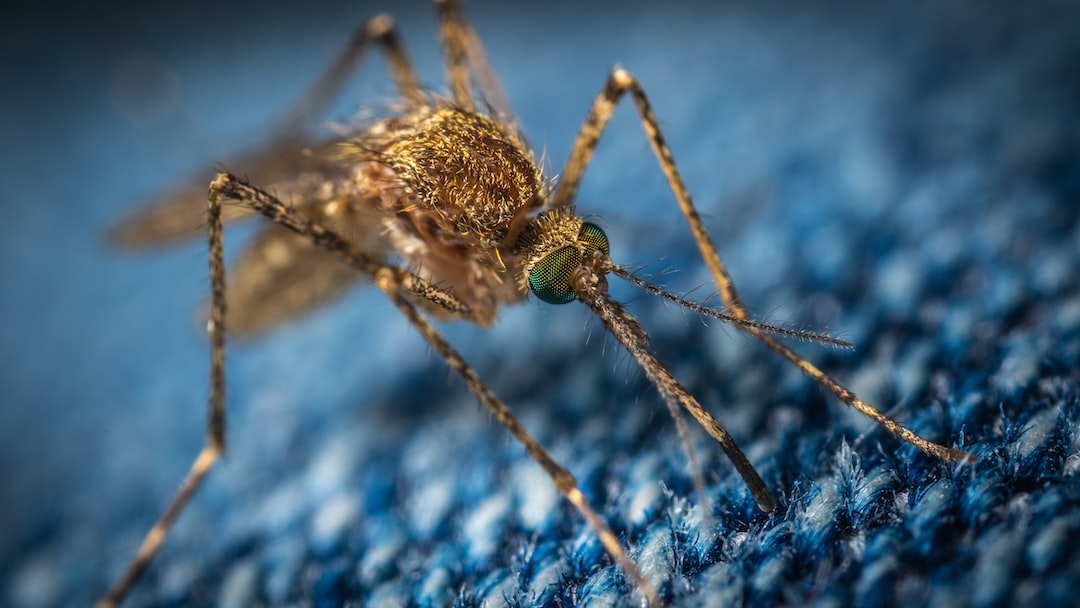Are you ready to finally keep the mosquitoes away?
The best mosquito repellent is out there, but what works for one person may not work for another.
Do you want a chemical-based solution or something more natural? What about alternatives like wristbands and patches?
We’ll explore all these options so that you can find the best mosquito repellent for your needs. From DEET to permethrin and plant oils, we’ve got it covered.
DEET: The Most Popular Repellent Chemical
DEET is the most popular chemical mosquito repellent, and it has been used for decades to protect against mosquitoes. DEET stands for N,N-diethyl-m-toluamide and was developed by the US Army in 1946 as a way to repel insects from soldiers.
It works by masking human scents that attract mosquitoes and other bugs.
What is DEET? DEET is an odorless, colorless chemical compound that can be found in many insect repellents. It’s also known as diethyltoluamide or simply “DEET”.
The concentration of DEET varies depending on the product; concentrations range from 4% up to 100%. Generally speaking, higher concentrations are more effective at keeping away mosquitos but may cause skin irritation or other side effects if applied too often or left on for too long.
How Does DEET Work?
When applied to the skin or clothing, DEET creates a vapor barrier around you that masks your scent from mosquitos and other biting insects. This vapor barrier makes it difficult for them to find you so they will fly away instead of landing on your skin where they could bite you.
While there have been some reports of adverse reactions when using products containing high levels of DEET (over 50%), these cases are rare and usually occur when people apply large amounts over extended periods or do not follow directions properly.
Generally, products with lower concentrations (10%-30%) can be considered safe for use by adults and children above two months old if instructions on topical application or spraying onto clothing items such as hats or socks before going outdoors into areas where mosquitos may be present are followed carefully.
For those looking for a reliable and widely used mosquito repellent, DEET is an excellent choice.
However, it’s important to be aware of the safety concerns associated with its use. For an even more effective protection against mosquitoes, Permethrin may be worth considering as well.
Permethrin: A Powerful Repellent for Clothes and Gear
Permethrin is a powerful insecticide that can be used to treat clothes and gear to repel mosquitoes. It is an odorless, colorless chemical compound derived from the chrysanthemum flower.
Permethrin works by disrupting the nervous system of insects, which causes them to become paralyzed and eventually die. When applied to clothing or other gear, it creates a barrier that prevents mosquitoes from coming into contact with skin.
What is Permethrin?
Permethrin is an insecticide derived from the chrysanthemum flower that has been used for decades as an effective mosquito repellent.
It comes in liquid form and can be sprayed directly onto clothing or gear such as tents, sleeping bags, backpacks, etc., creating a protective barrier against mosquitoes and other biting insects.
How Does Permethrin Work?
When permethrin comes into contact with an insect’s nervous system it disrupts its normal functioning causing paralysis and eventual death. The active ingredient in permethrin binds to certain proteins on nerve cells which then prevent them from working properly resulting in paralysis of the affected insect within minutes after exposure.
Although permethrin has been proven safe for humans when used according to label instructions, there are still some safety concerns associated with its use.
These include irritation of eyes or skin if not handled properly; inhalation of fumes; ingestion; absorption through skin; allergic reactions; toxicity when exposed over long periods of time; contamination of water sources due to runoff during application; potential harm caused by using too much product at once (overdosing); and resistance developing among target pests due to repeated applications over time without rotating products or utilizing different types of chemicals altogether (such as pyrethrins).
Due to its ability to bind quickly with proteins on nerve cells, permethrin acts rapidly upon contact making it one of the most effective mosquito repellents available today.
Additionally, because it is able to create a physical barrier between you and any mosquitos trying to enter your space, this makes it even more effective than traditional sprays or lotions since they don’t always provide complete coverage like permithin does when applied correctly.
Permethrin is a powerful insecticide that can be used to treat clothes and gear to repel mosquitoes. It is a synthetic form of the natural insect repellent found in chrysanthemum flowers, pyrethrum. Permethrin works by disrupting the nervous system of insects when they come into contact with it. This causes them to become paralyzed or die.
Permethrin is an odorless, non-staining chemical compound that has been registered for use as an insecticide since 1979.
It’s commonly used in lice shampoos and flea sprays for pets, as well as mosquito repellents for humans and livestock. When applied correctly, permethrin creates a barrier on clothing and other fabrics that repels mosquitoes and other biting insects such as ticks, flies, gnats, ants, moths, fleas and more.
How Does Permethrin Work?
When applied correctly to fabric items like shirts or pants (or even backpacks and tents), permethrin forms an invisible layer on the surface of those items which acts like an invisible shield against biting insects such as mosquitoes or ticks.
The active ingredient in permethrin binds tightly to fibers so it won’t wash off easily with water alone; however if exposed to heat from sunlight or washing machines over time it will eventually break down naturally leaving no residue behind on your clothes or gear after treatment.
When using products containing permethrin, caution should always be exercised. Direct skin exposure without proper protection such as gloves may cause irritation; inhalation of the strong smell can also pose a risk; splashing into eyes could lead to eye irritation; and ingestion by children playing with treated items is another potential hazard.
Additionally, environmental contamination through runoff into waterways may negatively affect aquatic life due to high concentrations of this chemical compound in their environment.
One reason why permithrin works so well at keeping bugs away from you while hunting is because they create a physical barrier between you and the pests rather than just masking odors like traditional bug sprays do.
Additionally, unlike many conventional bug sprays, once applied properly, permithrins remain effective up until several weeks later even after multiple washes depending on what type of material was treated. This allows hunters more peace of mind knowing their clothes are protected during long days out in nature.
If you are planning a big game hunt out West in the Spring or Summer months, I would strongly recommend pre-treating your gear with Permethrin.
Permethrin is a powerful insecticide and repellent that can be used to protect your clothing and gear while out in the wilderness. However, if you’re looking for more natural alternatives, there are plant oils and extracts which have been found to effectively repel mosquitoes as well – let’s explore these options next.
Natural Repellents: Plant Oils and Extracts
Natural repellents are plant oils and extracts that can be used as an alternative to chemical repellents like DEET or permethrin. These natural alternatives have been used for centuries by people around the world, but their effectiveness has only recently been scientifically proven.
What are Natural Repellents?
Natural repellents are derived from plants and other natural sources such as essential oils, herbs, spices, and other botanical extracts. They work by masking the scent of humans which attracts mosquitoes or by creating a physical barrier between you and the mosquito.
Which Plant Oils and Extracts are Effective Mosquito Repellents?
Some of the most popular plant-based mosquito repellent ingredients include citronella oil, lemon eucalyptus oil, lavender oil, peppermint oil, clove oil, geranium oil, cedarwood oil and garlic extract.
All of these ingredients have been found to be effective at deterring mosquitoes when applied topically or diffused into the air in small amounts.
As with any type of product, there is always a risk associated with using it improperly or excessively. With natural products, this includes potential skin irritation due to allergies or sensitivities to certain ingredients, so it is important to test them on a small area first before applying liberally over large areas of skin.
Additionally, some essential oils should not be used on children under two years old; therefore, it is best to consult your doctor before using them if you have young children in your home who may come into contact with them accidentally while outdoors playing near where they were applied.
Natural repellents are a safe and effective way to repel mosquitoes, but they may not be the most convenient option. For those looking for more portable solutions, wristbands, patches, and other alternatives offer an easy way to stay mosquito-free while on the go.
Wristbands, Patches, and Other Alternatives to Sprays and Lotions
Wristbands, patches, and other alternatives to sprays or lotions are becoming increasingly popular as a way to repel mosquitoes without using chemicals or sprays.
Wristbands usually contain citronella oil which is released slowly over time in order to provide protection from mosquitoes.
Patches typically contain natural oils such as eucalyptus, lavender, lemongrass, cedarwood and peppermint that have been proven effective against mosquito bites. They can be applied directly onto the skin or clothing for up to 12 hours of protection.
Other alternatives include bracelets made with essential oils like tea tree oil and neem oil which act as a natural insect repellent when worn on the wrist or ankle.
Do Wristbands Really Work as a Mosquito Repellent?
Yes. Studies have shown that wristbands containing citronella oil are effective at repelling mosquitoes for up to 8 hours after application.
The effectiveness of these bands varies depending on how often they are replaced and how much contact they make with the skin while being worn.
It’s important to note that some people may experience an allergic reaction if exposed too long so it’s best not to wear them overnight unless you know you won’t be affected by any potential allergies associated with them.
If the mosquitos are really, really bad, sometimes layering up with mosquito-proof clothing works best when paired with a mosquito net. Throw on your hunting rain gear and allow the waterproofing technology to keep the mosquitos off.
FAQs in Relation to Best Mosquito Repellent
What is the most effective mosquito repellent?
The most effective mosquito repellent is DEET. It has been used for over 50 years and continues to be the gold standard in insect repellents. DEET works by forming a protective barrier on your skin that repels mosquitoes, making it an ideal choice for outdoor activities such as bowhunting and camping.
It also lasts longer than other types of repellents, providing up to 8 hours of protection against mosquitoes. For maximum effectiveness, use a product with at least 20% concentration of DEET when outdoors in areas where mosquitoes are present.
What really works for mosquitoes?
Mosquitoes can be a nuisance, especially when out hunting. The best way to keep them away is by using an insect repellent that contains DEET or picaridin.
Additionally, wearing light-colored clothing and avoiding areas with standing water can help reduce the number of mosquitoes in your vicinity. If you are still having trouble, try using citronella candles or mosquito traps to further deter these pesky bugs.
With the right combination of repellents, clothing and traps, you can enjoy a mosquito-free hunting experience.
How do I stop mosquitoes from biting me?
Mosquitoes are a nuisance, but there are ways to keep them away. Firstly, wear light-colored clothing that covers as much of your body as possible.
Secondly, use insect repellents containing DEET or picaridin on exposed skin and clothing.
Thirdly, avoid being outdoors during peak mosquito activity times such as dawn and dusk.
Finally, reduce the amount of standing water around your home by emptying birdbaths and other containers regularly to prevent mosquitoes from breeding in them. By following these steps you can help ensure you won’t be bothered by pesky mosquitoes.
What smell do mosquitoes hate?
Mosquitoes are known to be repelled by certain smells, such as citronella, eucalyptus, and lavender. However, one of the most effective scents for deterring mosquitoes is a combination of garlic and mint.
The strong scent of garlic can help mask other odors that attract mosquitoes while the mint helps to further repel them. When used together in an outdoor area or on clothing, this combination has been found to be highly effective at keeping mosquitoes away.
Conclusion
When it comes to choosing the best mosquito repellent, there are a variety of options available. DEET is the most popular chemical repellent and has been proven safe for use on skin when used as directed. Permethrin is an effective option for treating clothes and gear, while natural plant oils and extracts can provide a more eco-friendly solution.
Finally, wristbands, patches, and other alternatives may offer an alternative to sprays or lotions if you’re looking for something different. Ultimately, no matter which type of repellent you choose, make sure that it’s safe for both kids and pets before using it in your outdoor adventures.



